Last Saturday I spoke to a group of Philadelphia Quakers about spiritual discernment, a topic I’ve been writing about for nearly 16 years, though the longer I write about it, the less I think I know. In general, my message over the years has been this: There is a Divine Spirit that offers us guidance, though it’s not always easy to hear or distinguish from the other voices that can guide us, such as social pressure and our own ego-driven desires.
I still believe this, though during the last year I’ve been getting another message that seems contradictory. As I was wrapping up revisions on the book I got a letter from a former Pendle Hill teacher that I summarized in this paragraph, at the end of the section on discernment:
Chris Ravndal, who taught prayer at Pendle Hill for many years, says that when he was young he asked God for yes-or-no answers, like should he do this or that. He got answers, he says, but now in his seventies he feels there is a danger in asking God to make our decisions for us. Not only does it “make us vulnerable to influences that are not God,” it can keep us from developing our own power of choice. “God gives us the tools and basic knowledge with which to build our structure rather than the architect’s plan,” he explains. “You must reach your own decision, keeping before you the basic principles and constantly seeking God’s assistance in arriving at your decision.” This builds in us the confidence and judgment to take responsibility for our own choices.
Since getting Chris’ letter, I’ve heard other people share similar perspectives. One woman, who was praying over a difficult decision, heard an answer that said basically, “I don’t care what you decide about that, I just want you to love me.” Then a few weeks ago, I heard a Lenten sermon that included this passage from Barbara Brown Taylor, my new favorite spiritual author, from her book An Altar in the World. Taylor was in seminary and had taken to praying every night on a fire escape for guidance about her vocation, which was unclear to her:
Up on that fire escape, I learned to pray the way a wolf howls. I learned to pray the way that Ella Fitzgerald sang scat.
Then one night when my whole heart was open to hearing from God what I was supposed to do with my life, God said, “Anything that pleases you.”
“What?” I said, resorting to words again. “What kind of an answer is that?”
“Do anything that pleases you,” the voice in my head said again, “and belong to me.”
At one level, that answer was no help at all. The ball was back in my court again, where God had left me all kinds of room to lob it whereer I wanted. I could be a priest or a circus worker… Whatever I decided to do for a living, it was not what I did but how I did it that mattered.
This passage seemed to speak to the people at Saturday’s talk where, with the encouragement of the same elders who accompanied me when I spoke at Pendle Hill in January, I shared more of my personal struggles and questions this time. My big question of the moment is what it means to belong to God and how one does that on a daily basis. As I prepare to grade 46 college research papers, it’s good to remember that it’s not what I do but how I do it that makes work holy.

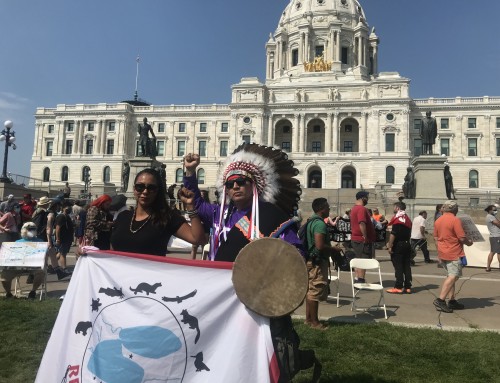
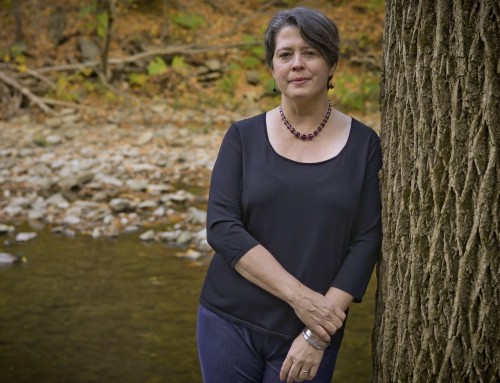
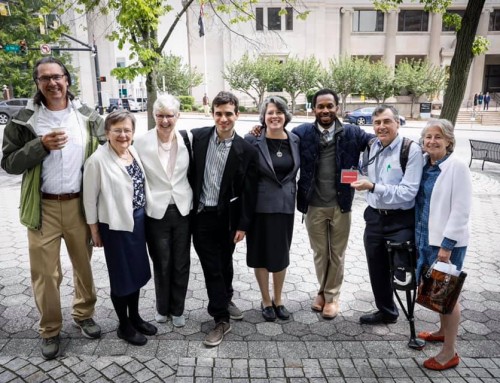
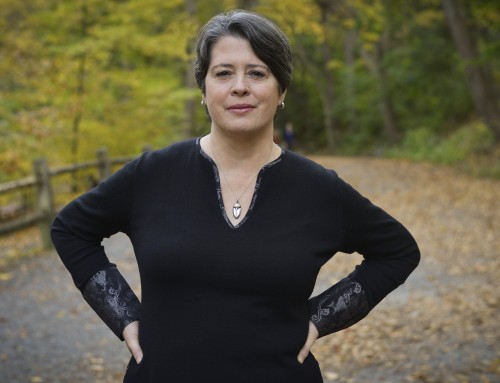

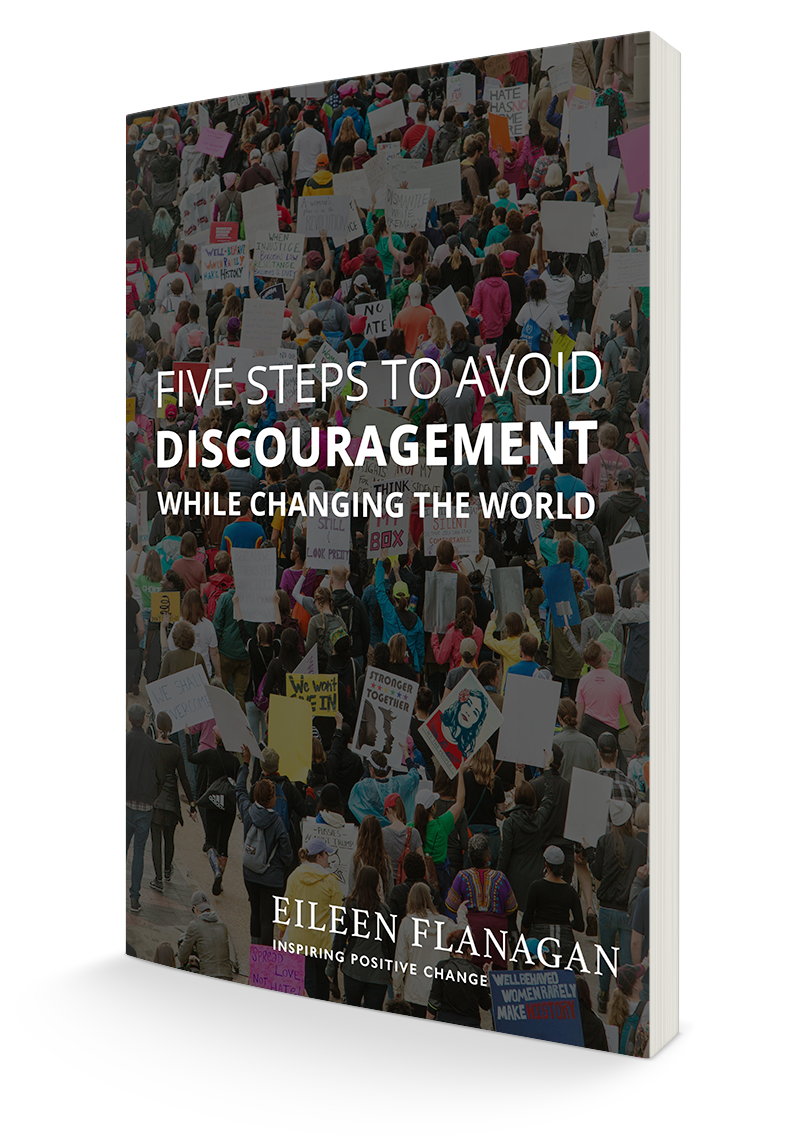
Even though 1) God is closer and 2) God is more overwhelming than any human parent, the parent-child metaphor we get from the Hebrew scriptures via Jesus may be our best analogy for this sort of question.
Guidance is available, from One with a far wider & deeper perspective, but
depriving people of their own wills and individualities is not the object.
So, if one asks in a limp-dishrag spirit, that’s behaving like the sort of child that drives a parent crazy with disinterest or timidity. "I don’t care, whatever you want." It’s like having a child emotionally stillborn; you can’t do nuthin for or with such a person!
John Woolman was striving to lose his own will– but it was the fact that he had strong wishes and intentions of his own that made him such an effective instrument.
Also, the proper answer to a question like "What should I do?" may depend on what the questioner has done to find out. Can you ask a parent for advice?– Sure. Will you understand that advice if you haven’t thought about the question?– Probably not so well.
We and our limited perspectives are a divine creation; if we weren’t supposed to exist in this form, we wouldn’t. But in this form, we suffer from those limitations, and do badly if we succeed in forgetting/ignoring them.
Too much guidance: an automaton. Too little: a fool.
I don’t think there is a right way. It’s going to be different ways at different times and for different people – and for that matter it’s not even an either/or. I don’t think of God as puppeteer and we as the puppets, but sometimes God will give us a direction or certainly a piece of wisdom. That may be about something that we’re specifically praying about, but often it’s not. We need to be open to hear it whatever way. But sometimes it is more like God is accompanying us when we are making decisions, based upon our understanding of God and principles that are consistent with God’s way.
The big danger is putting how God leads our lives in a box. So any of the boxes tends to limit our faithfulness, although each has usefulness even if we are not seeing outside the box. We really are bathed in grace, whether we realize it or not.
"My big question of the moment is what it means to belong to God and how one does that on a daily basis. "
Ahhhhh… I *love* that your questions are *big*… they stretch me 😉
Your question is reminding me of this well-known Rumi Quote…
"I would like to beg you dear Sir, as well as I can, to have patience with everything unresolved in your heart and to try to love the questions themselves as if they were locked rooms or books written in a very foreign language. Don’t search for the answers, which could not be given to you now, because you would not be able to live them. And the point is to live everything. Live the questions now. Perhaps then, someday far in the future, you will gradually, without even noticing it, live your way into the answer."
~Blessings~
"If you want to build a ship, don’t drum up people together to collect wood… but rather teach them to long for the endless immensity of the sea." –Antoine de Saint-Exupery
Perhaps…the above quote is a glimpse of how we are to live our lives; not following specific plans, but simply longing to be close to God.
Thanks for the thoughtful comments. I was also thinking of the parent/child metaphor, like when my daughter asks what 45 divided by 15 is and I just keep my mouth shut, knowing that she can figure it out herself. I also agree about longing and it being different in different phases of our lives. I love that line "live the questions," though I always thought it was from the German poet Rilke.
Off to drop the kids at school and grade papers, the stuff of daily life.
Ooooops… Yup 🙂
~Rilke~
"Where two or three are gathered together in my name, I am there in the midst of them." "It seemed good to the Holy Spirit, and to us." "Let the peace of God rule in your hearts." God apparently reveals His will through the sense of a meeting that’s gathered in his name and actively interacting with Him..
This is a wonderful find. Thank you. I asked for guidance today in meditation then went to audition for a big part in a TV show that I had spent a lot of time preparing for … I arrived to find that I had been given the wrong script. And after reading and taping the other script I was told that I was wonderful and they wanted to save me for something better, more appropriate for me…
I tried to get mad… I tried to get pushy about reading for the original part… to make it go My Way… but here’s the thing… what I love most about being an actor is knowing that every moment is a God thing… every person an angel with a message … every opportunity is a chance to trust that God is working through everyone, everything and every moment … What a great ride!
Good to find you here….
Glad you commented, Vivian. Best wishes. You’re right that every moment is a chance to trust. On the one hand, I remember hearing that Jesse L Martin turned down a bit part on Law and Order and later got a lead. On the other hand, sometimes my big learning opportunities have come when I didn’t get what I wanted. So, there could be good in it either way, though it’s hard to see it at the time. Enjoy the ride!
Thanks for this post. When I’ve been distressed and in need of direction, I haven’t heard anything except a clear invitation: "just come to me." My friends have told me that they’ve received similar invitations. Your post provides yet more examples of God’s love and desire for us to just come close and dwell in him. It’s really too amazing for me to understand right now.